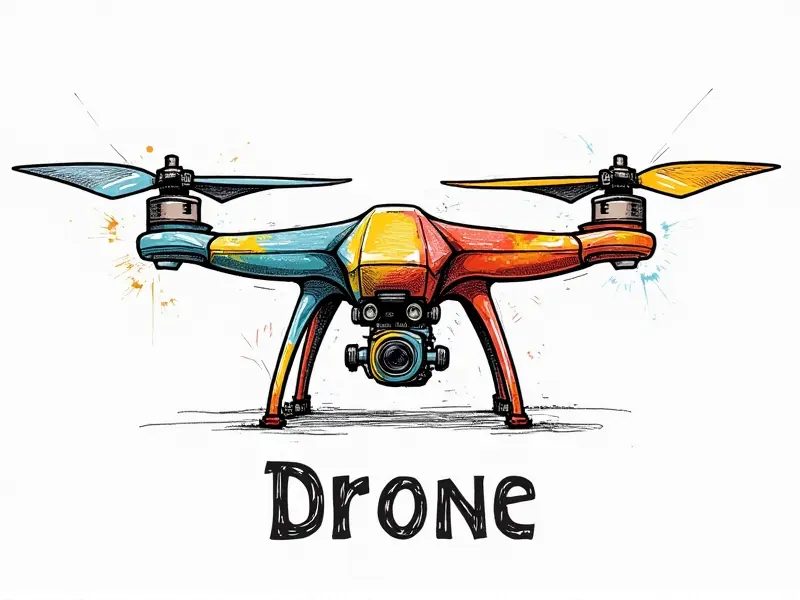How to check battery health?

How to Check RC Drone Battery Health
Ensuring the health of your RC drone battery is crucial for maximizing flight time and maintaining safety. Regularly checking your battery can help you diagnose potential issues before they become problematic, ensuring that your quadcopter performs at its best.
Maximizing Flight Time with Healthy Quadcopter Batteries
To get the most out of your RC drone flights, it's essential to keep your batteries in optimal condition. A healthy battery not only provides longer flight times but also ensures consistent performance during critical maneuvers.
- Monitor Voltage Levels: Use a digital multimeter or dedicated battery checker to measure the voltage before and after each use.
- Balance Charging: Ensure that all cells within your LiPo pack are balanced to prevent uneven wear and tear.
- Avoid Overcharging: Always charge batteries according to manufacturer guidelines to avoid damaging the battery cells.
Simple Guide to Testing Quadcopter Batteries
Testing your quadcopter's battery is a straightforward process that can be done quickly and efficiently. Here’s how you can do it:
- Check the Battery Condition: Inspect for any physical damage, swelling, or leaks.
- Measure Voltage: Use a multimeter to measure the voltage of each cell in your LiPo battery pack.
- Battery Capacity Test: Discharge the battery under controlled conditions and record its capacity. This can be done using a dedicated discharge tester or by flying the drone until it lands due to low power.
Quick Tips for Checking Helicopter Battery Health
Helicopters, like quadcopters, require careful battery management to ensure peak performance and safety. Here are some quick tips:
- Voltage Check: Regularly check the voltage of each cell using a multimeter.
- Battery Balancing: Ensure that all cells in your LiPo battery pack are balanced before every flight.
- Monitor Temperature: Keep an eye on the temperature during charging and discharging to avoid overheating.
Ensure Your Airplane Battery is in Top Shape
Airplanes rely heavily on their batteries for stable performance. Here’s how you can ensure your airplane battery stays healthy:
- Regular Testing: Test the voltage and capacity of your LiPo pack regularly.
- Battery Maintenance: Clean contacts, remove debris, and keep batteries dry to prevent corrosion.
- Avoid Overcharging: Use a charger that supports balanced charging to avoid overcharging individual cells.
Diagnosing Issues with RC Aircraft Batteries
If you notice any issues with your battery, it’s important to diagnose and address them promptly. Common problems include:
- Voltage Drop: If the voltage drops rapidly during flight, this could indicate a failing cell.
- Battery Swelling: A swollen battery is often a sign of internal damage or overheating.
- Inconsistent Performance: Any sudden decrease in performance can be due to an unbalanced pack or a defective cell.
Maintaining FPV Racing Drone Battery Life
FPV racing drones are particularly demanding on their batteries. Here’s how you can keep them healthy:
- Frequent Testing: Regularly test the battery capacity and voltage to ensure consistent performance.
- Battery Storage: Store your batteries in a cool, dry place away from flammable materials.
- Avoid Deep Discharge: Never let your battery discharge completely; always stop flying when it reaches 20-30% capacity.
Maximizing Battery Lifespan on RC Drones
To extend the life of your RC drone batteries, follow these tips:
- Proper Charging: Use a high-quality charger that supports balanced charging and has built-in safety features.
- Avoid Extreme Conditions: Do not expose batteries to extreme temperatures or direct sunlight.
- Regular Maintenance: Clean contacts, check for damage, and store batteries properly when not in use.
Ensuring RC Airplane Battery Safety and Longevity
Safety should always be a top priority when dealing with RC aircraft batteries. Follow these guidelines to ensure both safety and longevity:
- Use Proper Equipment: Invest in quality chargers, discharge testers, and other equipment designed for LiPo batteries.
- Avoid Overheating: Monitor temperature during charging and discharging; overheating can lead to catastrophic failure.
- Proper Storage: Store batteries in a fireproof container or battery box when not in use.
Tips for Testing RC Aircraft Batteries Efficiently
To test your RC aircraft batteries efficiently, consider the following tips:
- Use Dedicated Tools: Invest in a digital multimeter and discharge tester to get accurate readings.
- Test Regularly: Establish a routine for testing battery health at least once a month or after every 10 flights.
- Document Readings: Keep records of your test results to track changes over time and identify trends.
Quick Guide to Checking FPV Racing Drone Batteries
To ensure your FPV racing drone batteries are in top condition, follow this quick guide:
- Inspect for Damage: Look for any physical damage or signs of swelling.
- Check Voltage: Measure the voltage of each cell using a multimeter.
- Battery Capacity Test: Use a discharge tester to determine battery capacity and identify weak cells.
Conclusion
Maintaining the health of your RC drone batteries is essential for ensuring safe, reliable flights. By following these tips and guidelines, you can extend the lifespan of your batteries, maximize flight times, and avoid costly repairs or replacements. Regular testing and proper maintenance are key to keeping your RC aircraft in top condition.

